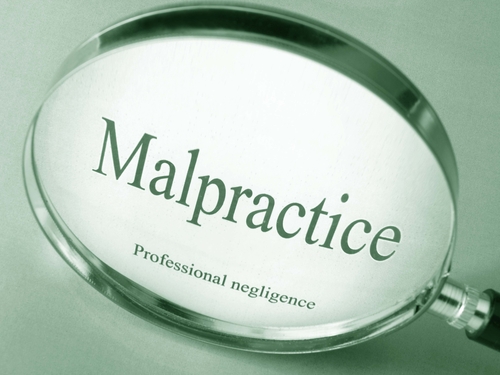Dentons' $32.3M malpractice loss remains intact after top Ohio court declines to hear case

Image from Shutterstock.
Updated: The Ohio Supreme Court on Tuesday refused to hear Dentons’ appeal of a malpractice verdict requiring it to pay $32.3 million to a former corporate client that had to find new lawyers after the law firm was tossed from a patent case.
Two justices dissented from the Ohio Supreme Court’s Aug. 30 order declining jurisdiction.
Dentons was disqualified after a client with its Canadian affiliate, the Gap, objected to Dentons’ representation of U.S. client RevoLaze in a patent enforcement case before the International Trade Commission. RevoLaze had alleged that the Gap and other retailers were violating RevoLaze’s patents by importing jeans that used its patented laser process to achieve a faded look.
Dentons operates under a Swiss verein structure in which multiple partnerships adopt a common brand, and some shared management functions but remain legally and financially distinct. Dentons’ Canadian and U.S. firms are separate Swiss verein affiliates.
Issues in the case included whether Dentons US and Dentons Canada should be treated as a single law firm regarding questions concerning conflicts and whether the Gap had waived potential future conflicts in its retainer agreement. An Ohio appeals court had ruled against Dentons on both issues in April.
The Court of Appeals of Ohio said Dentons should have obtained written consent from the Gap and RevoLaze before beginning the RevoLaze representation.
In a June 10 memorandum asking the Ohio Supreme Court to accept the case, Dentons argued that RevoLaze should not have won the malpractice case without showing that it would have won its case before the International Trade Commission. Dentons also argued that RevoLaze should not have been able to collect malpractice damages for making the decision to abandon its patent claim and settle with the Gap after negative facts surfaced in the International Trade Commission proceeding.
RevoLaze has said it was forced to settle the patent case because of the mounting expenses of replacement attorneys who did not agree to fee caps that Dentons had accepted.
Dentons forwarded this statement to the ABA Journal: “Dentons received support via amicus briefs from major players in the insurance industry, and understandably, we are deeply disappointed in the Ohio Supreme Court’s decision. We believe the key issue was overlooked; this case has nothing to do with the structure of our firm and everything to do with client consent. This is an existential problem that will put in jeopardy the entire legal profession’s ability to rely on client consent, impacting every lawyer and every law firm—regardless of size.”
Publications reporting on the Ohio Supreme Court’s refusal to hear the case include Bloomberg Law, Law.com, Law360 and Reuters.
Updated Aug. 31 at 12:50 p.m. to include the statement from Dentons.
Write a letter to the editor, share a story tip or update, or report an error.



